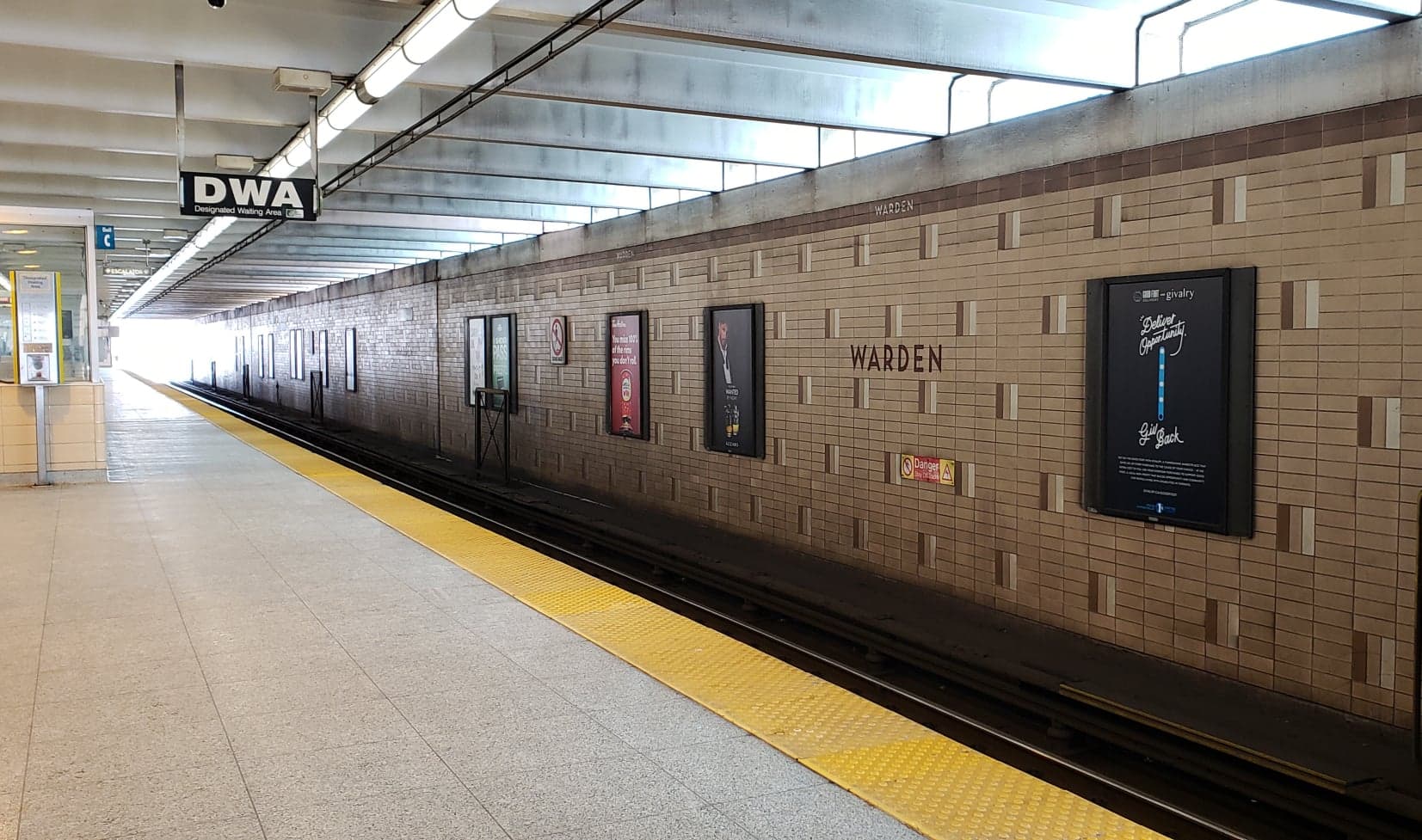It’s a typical Tuesday on a chilly, snowy day in February for commuters using Toronto’s subway system. A voice comes over loudspeakers inside the trains and stations to announce a “personal injury at track level.”
Trains on Line 2 Bloor-Danforth are halted and emergency services are called to Scarborough’s Warden station to deal with a suicide, one of dozens that will occur on the Toronto Transit Commission subway tracks this year.
Dealing with suicide – and the language used to describe it when informing passengers of service interruptions – has been an evolution for the TTC, said Susan Sperling, executive director of corporate communications. Tweets and e-alerts are deliberately vague about the cause of a stoppage, but the service has discussed ways to be more open about it, she said.
“We don’t have our faceless [social media] accounts talk about suicide. And if it is indeed a suicide, we will sort of let people know, but in an empathetic and compassionate way,” Sperling said.
Melissa Bosman, a program manager at Toronto Distress Centre, manages the Crisis Link partnership program with the TTC. The program provides payphone access on every subway platform to trained counsellors.
“I think from the TTC perspective, there’s two things at play: There’s customer service, but there’s also the wellbeing of passengers, too,” Bosman said.
“Reporting that a suicide has taken place without any additional context can actually be detrimental to passengers who might be experiencing mental health issues of their own,” she said.
Suicide has been an ongoing issue for the TTC since the Yonge subway line first opened in 1954. According to a tweet last year by Brad Ross, former TTC spokesman, “31 people had either died by suicide or attempted to die by suicide on the TTC” up until that point in September 2018.
https://twitter.com/bradrossTO/status/1039135843313569792
By the end of 2018, there had been nearly 1,500 suicide attempts since the subway first opened, the TTC confirmed in an email.
Death on the tracks, whether accidental or intentional, is officially referred to as “personal injury at track level” in passenger announcements. There’s a debate about how specific public institutions and services like the TTC should be about such deaths.
Dr. Mark Sinyor, one of the founding members of PROGRESS (Program of Research and Education to Stop Suicide) at Sunnybrook Health Sciences Centre, said he welcomes efforts to be open and transparent about mental health and suicide. But he think’s the subway announcement system is the wrong place for it.
“All of the evidence suggests that disseminating methods like subway deaths lead to contagion [and] harm, and to counteract that, you would probably need to deliver a highly contextualized message,” he said in an email.
Sadia, a commuter who was stuck in the tunnel for 40 minutes without power the day the suicide took place at Warden station, said she would like to be fully aware of the incidents taking place around her. But, as she was commuting with her 10-year-old son, she felt that not disclosing the news of a suicide was the right move. Her son was able to register that a death took place even though it was not mentioned at all.
“He was very upset when he heard that there was a personal injury,” she said. “He got really scared, and he said if nobody died, they wouldn’t have done the power cut and all that stuff.”
Where you can get help:
Canada Suicide Prevention Service
Website: www.crisisservicescanada.ca
Toll free line: 1 (833) 456-4566, 24 hours a day
Text: 45645 Available daily 4 p.m.-12 a.m. ET
Kids Help Phone
Text Services: Text “CONNECT” to 686868 (also serving adults)
Chat Services: (6 p.m.-2 a.m. ET) kidshelpphone.ca
Youthspace.ca online and text chat
NEED2 Suicide Prevention, Eduction & Support
Youth Text (6 p.m.-12 a.m. PT): (778) 783-0177
Youth Chat (6 p.m.-12 a.m. PT): www.youthspace.ca

